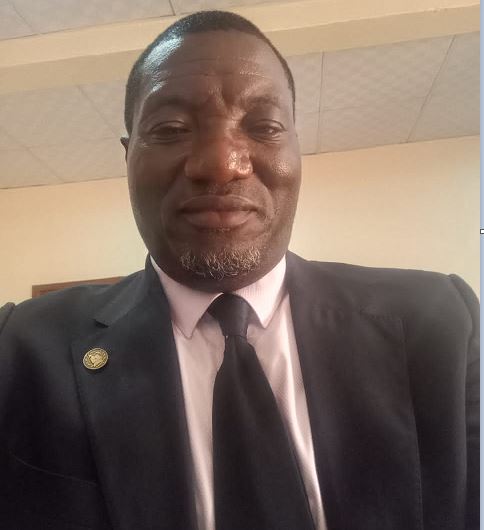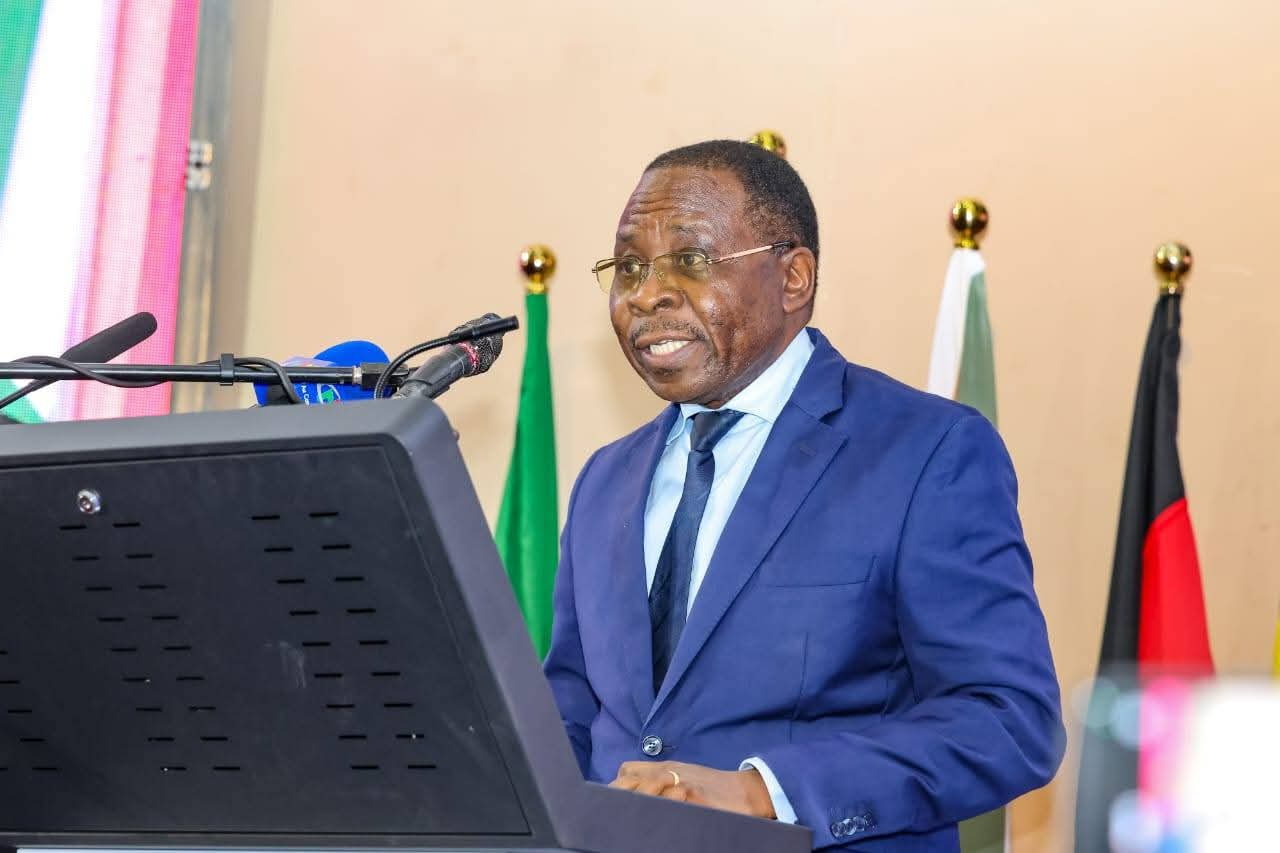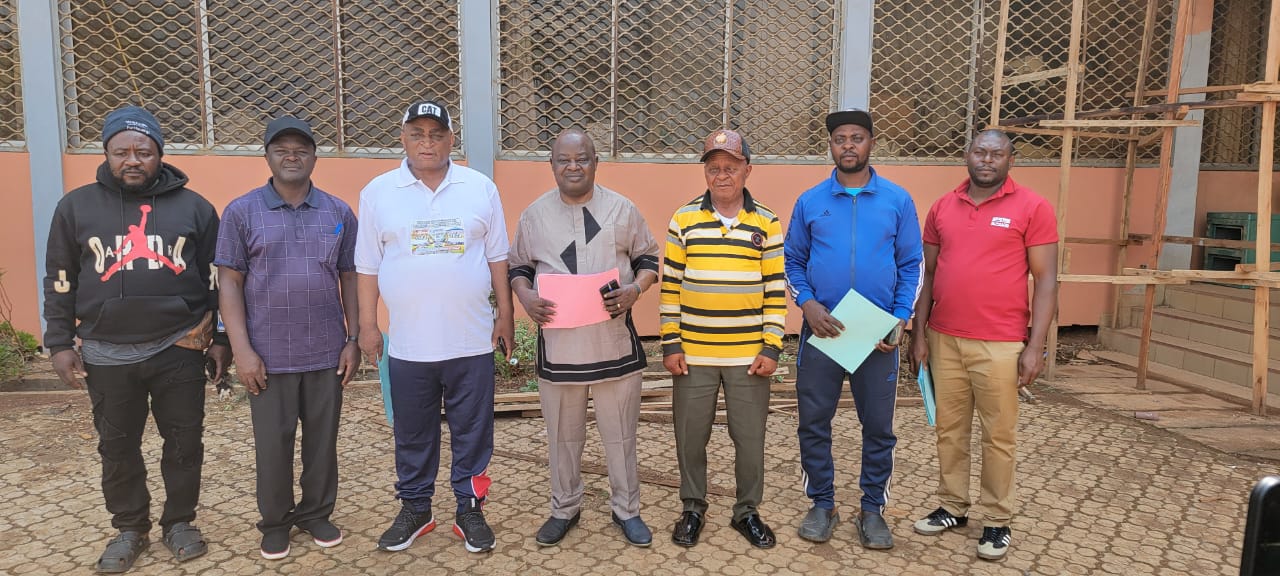Dr. Afuh Didachos Mbeng on how the good old books can change modern society.
Literature remains one of the most effective tools for fostering empathy and understanding, especially in a time when divisions within society seem to be growing. Research not only supports but proves that reading fiction helps us feel and understand other people better. The American Psychological Association notes an incredible finding in its reports: exposure to diverse stories and lives helps overcome biases and makes us more open to other cultures.
Dr. Afuh Didachos Mbeng, a renowned scholar and educator, holds a PhD in English and the title of Knight of Academic Honour in Cameroon, awarded in 2024 for his contribution to education and cross-cultural dialogue. He is senior lecturer at the University at the University of Ebolowa and senior member of the Cameroon English Language and Literature Association (CELLA). In addition, he has served as a reviewer and member of the university dissertation committee for evaluation and award of masters of arts degree in the “English language and literature” and has been a judge for prestigious events such as judging English and literature teachers during marking sessions at the Cameroon GCE board. His work embodies the transformative power of literature to bridge cultures and inspire real social change. We spoke with Dr. Mbeng about how literature can help solve some of the most pressing issues of our time.
Dr. Mbeng, how do you see the role of literature in today’s world, where technology seems to take up more and more of our attention?
Literature must evolve with the world to remain relevant; it should not remain confined to the classroom. For example, we now actively use digital storytelling — it helps reach a new generation of readers. Recently, I worked with students on a fascinating project: we turned African myths into podcasts and videos. This not only makes literature more accessible but also engages young people who have grown up with gadgets in their hands. In our globalized world, literature has a special mission — it helps preserve cultural identity while creating a space for dialogue between different traditions.
Sounds unusual. Digital storytelling seems to be an exciting and innovative way to engage students. Could you elaborate on how you’ve integrated this approach into your teaching?
Absolutely. Digital storytelling allows us to make literature more accessible and relatable to younger generations. As I’ve said, recently, I worked with students to create podcasts and videos based on African myths. This project not only helped preserve cultural heritage but also gave students a platform to creatively interpret and share these stories with a wider audience. It’s a perfect example of how traditional texts can find new life in modern formats, bridging the gap between generations and cultures.
How can literature help combat misinformation and foster critical thinking? This is a very important question. Literature teaches us the most crucial skill — the ability to analyze context, ask questions, and see situations from different perspectives. These skills are invaluable in today’s information noise. In my classes, I often show students how texts from different eras can help better understand modern media challenges and avoid manipulation.
How does literature’s ability to foster empathy relate to addressing broader global challenges?
Empathy is the foundation for tackling many of the world’s most pressing issues. When we understand and relate to others’ experiences, we are better equipped to take action — whether it’s addressing inequality, combating misinformation, or even responding to environmental crises. Literature gives us a lens to view these challenges on a human level, which is why it plays such a crucial role in creating awareness and inspiring change.
Many recognize your work as both an organizer and speaker at the CELLA conferences, particularly for linking literature to pressing issues like climate change. What inspired you to explore this connection?
At the 2022 CELLA conference, we explored how literature could not only reflect ecological issues but also connect with people on a deeper emotional level. African authors, in particular, have provided striking accounts of how climate change is altering their homelands, making these stories especially impactful. Literature has the unique ability to humanize abstract problems, fostering empathy and action. During the sessions I organized and moderated, we bridged the gap between scholars and environmental scientists, resulting in interdisciplinary collaborations. These projects demonstrated that literature can transcend traditional academic boundaries, offering solutions to real-world problems. When we read stories from diverse voices, we begin to truly understand and empathize, and empathy is the foundation for addressing any global challenge—be it climate change, inequality, or cultural conflict.
As a key figure in CELLA, known for advancing interdisciplinary dialogue, you’ve often emphasized literature’s role in addressing global challenges. Could you share how the 2022 conference influenced collaborative projects and real-world applications?
CELLA’s conferences serve as unique platforms where leading scholars from diverse disciplines engage in meaningful dialogue. My role as both an organizer and speaker has been to ensure these discussions are not just theoretical but actionable. At the 2022 conference, we tackled issues like ecofeminism and literature’s relationship with climate change. These discussions inspired collaborative projects between African and American researchers, leading to changes in academic curricula and interdisciplinary research initiatives. For instance, scholars partnered with environmental scientists to develop educational materials that integrate ecological themes into literary studies. Such efforts show how CELLA’s conferences foster tangible outcomes, proving literature’s relevance in solving global issues.
At CELLA, you’ve also spoken about the importance of multiculturalism in education. How do your ideas, as a speaker and educator, translate into practical changes in schools and influence educational policies?
Literature is an incredible tool for fostering openness and acceptance of cultural diversity. At CELLA, I highlighted how introducing multicultural texts in schools can naturally teach students to respect differences. For example, reading books by authors from diverse cultural and linguistic backgrounds allows young minds to appreciate other perspectives. At the University of Ngaoundere, I developed courses that connect literary works to pressing social issues like climate change and gender equality. These approaches have proven to not only engage students but also shape educational policies. In some Cameroonian regions, the insights from CELLA conferences have led to the inclusion of multicultural literature in school curricula, promoting inclusivity and unity in a culturally diverse society.
Your work at the University of Ngaoundere has had a lasting impact, from mentoring junior faculty members to supervising master’s research and organizing cultural activities. What strategies have you employed to achieve such success, and how do they align with your broader contributions to the academic community?
At the University of Ngaoundere, I combined innovative teaching methods with mentorship and cultural engagement to create a dynamic academic environment. By teaching a wide range of literature courses and developing bilingual training for French-speaking students, I ensured broad accessibility and relevance. My mentorship of junior faculty strengthened the department’s stability, while supervising master’s research resulted in outstanding outcomes, enhancing the university’s academic reputation.
Beyond academics, I organized cultural activities like poetry dramatizations and served on juries, fostering students’ leadership and teamwork skills. These efforts align with my work at CELLA, where I connect literary studies to real-world challenges through interdisciplinary collaboration. Together, these initiatives demonstrate my commitment to making literature a transformative force in education and society.
You mentioned you’ve developed courses that connect literature to contemporary issues such as climate change and gender equality. What inspired you to take this approach, and how have students responded?
Literature is a living, evolving field, and it becomes even more impactful when connected to real-world challenges. At the University of Ngaoundere, I designed courses that help students see how literary texts can illuminate pressing issues like environmental sustainability or social justice. For example, we analyzed works that highlight gender inequality and its societal implications, showing how literature can inspire both reflection and action. The students have been deeply engaged, often coming up with their own interpretations and even projects that extend these lessons into their communities.
In your teaching, you emphasize the connection between literature and societal challenges. Are there particular authors whose works you draw upon to illustrate this connection?
Absolutely. I often reference Chinua Achebe, Ngugi wa Thiong’o, and Leopold Senghor in my lectures. Their works are not just texts; they are profound reflections on identity, the consequences of colonialism, and social justice. For instance, Achebe’s Things Fall Apart is a powerful exploration of cultural disintegration and resilience, while Senghor’s poetry brings attention to the beauty and struggles of African identity. These authors demonstrate how literature can be a voice for the voiceless and a catalyst for societal change, themes that align closely with my own research and teaching philosophy.
How has their work shaped your view of literature and education? Each of these authors opened up a new way for me to see the world. Their works are not just texts; they are profound reflections on identity, the consequences of colonialism, and social justice. They showed me how literature can be the voice of those who have long been unheard. These themes are not only in tune with my research interests — they have largely shaped my path in academia and how I approach teaching.
Promoting new ideas in academia is never easy, especially when it comes to systemic changes. What obstacles have you faced in trying to change traditional approaches to teaching literature, and how do you overcome them?
One of the main problems is the lack of resources for teaching literature in countries like Cameroon. We address this through collaboration with international partners, attracting funding for conferences and teaching materials. Another challenge is resistance to new teaching methods. Many are used to the traditional approach, where literature is studied in isolation from contemporary issues. But when people see real results — how students start thinking more critically and become more sensitive to societal problems — resistance gradually fades. Every small success, every student who starts seeing the world more broadly, convinces even the biggest skeptics of the need for change.
And finally: what advice would you give to those who want to use literature for positive societal change?
My main advice is to focus on inclusivity and relevance. Ensure that your curricula include diverse voices and address real-world issues. Literature should not stay confined to the classroom — it should be a living dialogue that helps us better understand ourselves and the world around us. Only then can we unlock its full potential as a tool for social change.




